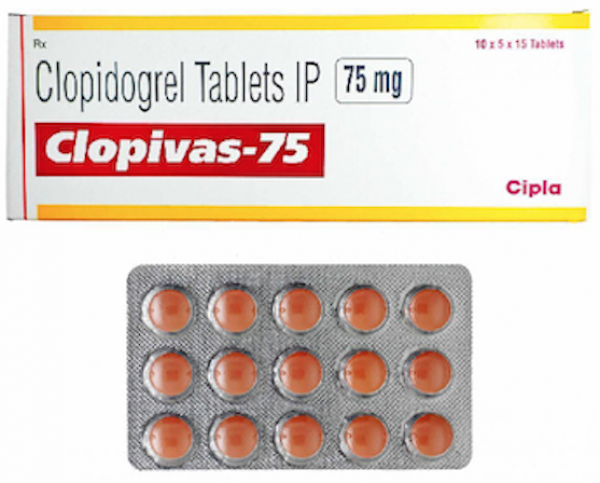Plavix (clopidogrel) keeps the platelets in your blood from coagulating (clotting) to prevent unwanted blood clots that can occur with certain heart or blood vessel conditions.
rnPlavix is used to prevent blood clots after a recent heart attack or stroke, and in people with certain disorders of the heart or blood vessels.
The health and medical information provided here is for general purposes only and is not a substitute for the expertise and judgment of your physician, or other health care professional. It should not be understood to indicate that the use of this medicine is safe, appropriate or effective for you. Always consult your health care professional before using this, or any other, drug.
Plavix keeps your blood from coagulating (clotting) to prevent unwanted blood clots that can occur with certain heart or blood vessel conditions. Because of this drug action, Plavix can make it easier for you to bleed, even from a minor injury. Contact your doctor or seek emergency medical attention if you have bleeding that will not stop.
rnYou may also have bleeding on the inside of your body, such as in your stomach or intestines. Call your doctor at once if you have black or bloody stools, or if you cough up blood or vomit that looks like coffee grounds. These could be signs of bleeding in your digestive tract.
rnAvoid drinking alcohol. It may increase your risk of bleeding in your stomach or intestines.
rnIf you need surgery or dental work, tell the surgeon or dentist ahead of time that you are using Plavix. You may need to stop using the medicine for at least 5 days before having surgery, to prevent excessive bleeding. Follow your doctor`s instructions and start taking Plavix again as soon as possible.
rnWhile you are taking Plavix, do not take aspirin or other NSAIDs (non-steroidal anti-inflammatory drugs) without your doctor`s advice. NSAIDs include ibuprofen (Motrin, Advil), diclofenac (Cataflam, Voltaren), etodolac (Lodine), indomethacin (Indocin), meloxicam (Mobic), nabumetone (Relafen), naproxen (Aleve, Naprosyn), piroxicam (Feldene), and others.
rnTell your doctor about all other medicines you use to prevent blood clots.
Get emergency medical help if you have any of these signs of an allergic reaction to Plavix: hives; difficulty breathing; swelling of your face, lips, tongue, or throat. Stop using Plavix and call your doctor at once if you have any of these serious side effects:
rnnosebleed or other bleeding that will not stop;
rnbloody or tarry stools, blood in your urine;
rncoughing up blood or vomit that looks like coffee grounds;
rnchest pain or heavy feeling, pain spreading to the arm or shoulder, nausea, sweating, general ill feeling;
rnsudden numbness or weakness, especially on one side of the body;
rnsudden headache, confusion, problems with vision, speech, or balance;
rnpale skin, weakness, fever, or jaundice (yellowing of the skin or eyes); or
rneasy bruising, unusual bleeding (nose, mouth, vagina, or rectum), purple or red pinpoint spots under your skin.
rnLess serious Plavix side effects may include itching.
Take Plavix exactly as prescribed by your doctor. Do not take in larger or smaller amounts or for longer than recommended. Follow the directions on your prescription label.
rnTake Plavix with a full glass of water.
rnPlavix can be taken with or without food.



